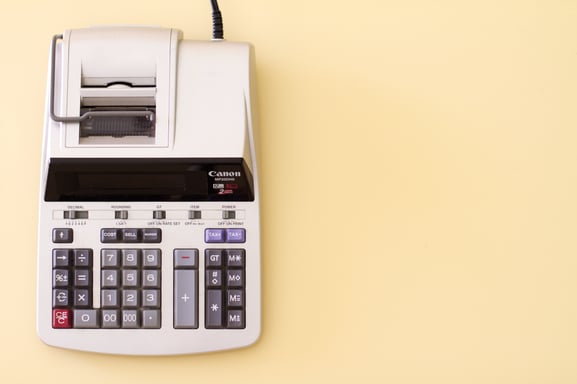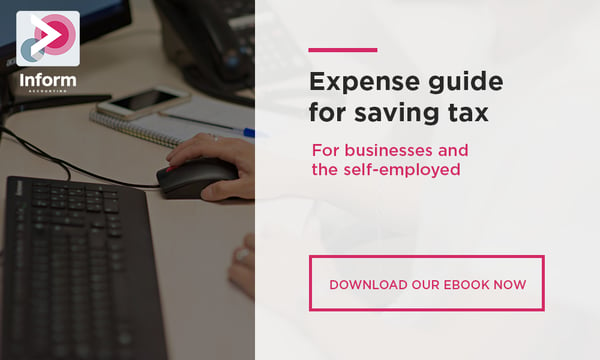BLOG
Unexpected tax bills on horizon from coronavirus grants

Depending on how businesses and self-employed individuals prepare their accounts, there could be unexpectedly large tax bills for those that have received small business or retail, hospitality and leisure grants during the pandemic as early as this tax year.
Coronavirus grant income is taxable, and for some, this tax will be payable sooner than they think.
Government and local authorities have announced and distributed several grants recently, including the Small Business Grant Fund and the Retail, Hospitality and Leisure Grant Fund, to help smaller businesses adversely affected by the coronavirus crisis.
This has been a welcome boost, but as business owners start to think about their tax returns for the 2019/20 tax year, it is now time to take a closer look at the amount of tax that will be payable on these grants and when it will be due.
When these grants were announced in the Budget in March 2020, it was confirmed that the funding for these two schemes was to come from local councils’ 2020/2021 budgets, so the majority of claimants will not have received their grant until after 5 April 2020.
For a sole trader or partnership preparing accounts on the cash basis, this income will be taxable in the 2020/21 tax year and the income tax payable by 31 January 2022. This should give these businesses time to recommence trading and have a period of recovery before the tax is due. The grant should replace income lost, and so hopefully tax will be payable at no more than their normal marginal rate of tax.
However, many businesses are not eligible for cash basis accounting, including companies, limited liability partnerships and unincorporated businesses with a turnover of £150,000 or more, to name a few. In addition, cash basis accounting was only introduced in the 2013/14 tax year, and there may be many businesses who have continued to prepare their accounts using the accruals basis. These businesses could end up with a tax bill both sooner and larger than they anticipated.
Where a business prepares accounts on an accruals basis, the government grant income will be recognised on 11 March 2020 irrespective of when the amount is received, due to there being no performance conditions attached to the grant (other than the business’ rateable value as at 11 March 2020).
Self-employed individuals with a year-end of 31 March will need to include this grant income in the 2019/20 tax year, so the tax on it will be due in just over six months’ time, by 31 January 2021, which is 12 months earlier than they might have thought. As the grant income can be up to £25,000, this could also push an individual’s profits into the next tax band for the 2019/20 tax year, compared to if they had been able to tax the profits in 2020/21, being the year that their profits will actually be adversely affected.
Example
This is best demonstrated by a real-life example of a café owner and shop owner sole traders who both make profits of £50,000 per annum and receive a grant of £10,000 from the Retail, Hospitality and Leisure Grant Fund. Both businesses have a 31 March year end. The café owner prepares accounts on the cash basis, while the shop owner prepares accounts on the accruals basis.
For the café owner, the grant income would be taxed in 2020/21 as it is taxable in the year it is received under the cash basis of accounting. As this is also the year their profits will be adversely affected, the grant is unlikely to push the individual into the higher rate tax bracket. The resulting tax liability of £2,000 will be due by 31 January 2022.
Meanwhile the receipt of the additional £10,000 by the shop owner is recognised in the accounts to 31 March 2020 and could push them into the higher rate tax bracket in 2019/20. This would result in a tax liability of £4,000 due on 31 January 2021.
In comparison to the café owner, the shop owner now has a tax liability which is double that of the café owner, and they will also need to find the funds to make the payment 12 months earlier.
There are a couple of options which the shop owner may wish to consider to improve this position.
- Firstly, they could consider converting to the cash basis of accounting if they meet the relevant criteria. However, there are various tax adjustments which will need to be made in converting from the accruals basis to the cash basis which could impact on the tax effectiveness of the conversion. There are also other commercial considerations to take into account - if they have borrowings from a bank, the bank may require accruals basis accounts.
- Secondly, consideration could be given to changing the accounting period reference date to ensure the income either falls into the 2020/21 tax year (by bringing the accounting period end forward) or alternatively by extending the accounting period to reflect subsequent lower profits.
It is important that a business owner considers whether a new accounting period is practical for them going forwards and also analyse whether any such change gives the desired result. HMRC will also need to be informed as to why the accounting period has been changed, and commercial, as well as tax reasons, will be required to support the position.
Taxpayers should however remember, that regardless of the date and rate of payment of tax, the grants are still income that would not normally have been received. So, while there may be a slight sting in the tail for some, ultimately, it is better to have the money and be taxed on it, than not at all.
Source: https://www.accountancydaily.co/unexpected-tax-bills-horizon-coronavirus-grants
Read more of Inform's tax blogs:
Live page: Accounting advice during business disruption
It's that wonderful time of the year...for fraudsters to pray on taxpayers!
Paying yourself a salary: What are the most tax efficient options for limited company owners?
Four key cashflow issues that could cripple your business (and how to avoid them)...




.jpg?width=1500&height=1000&name=amy-hirschi-K0c8ko3e6AA-unsplash-(5).jpg)

